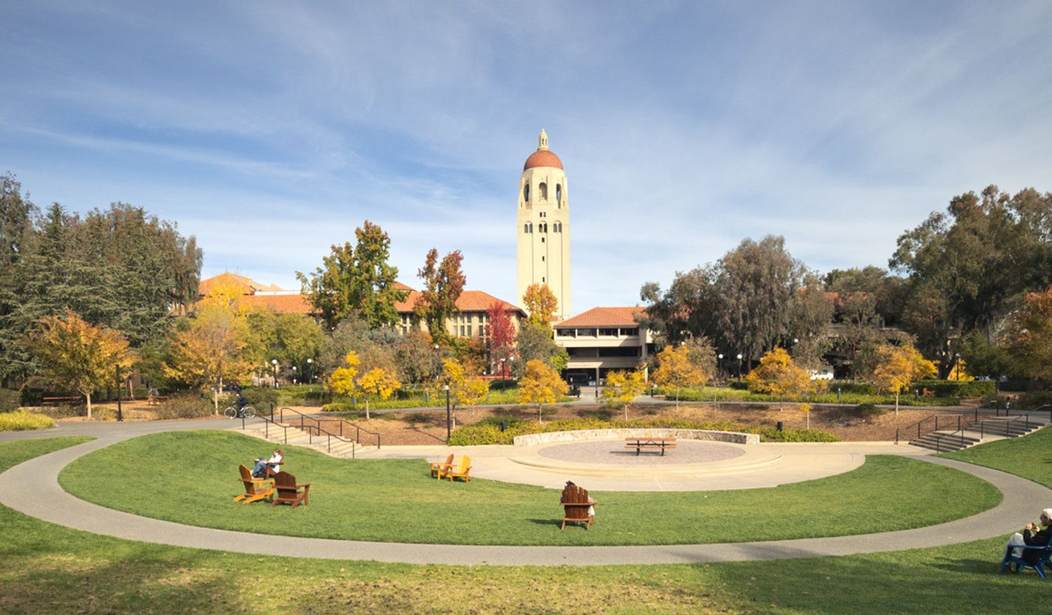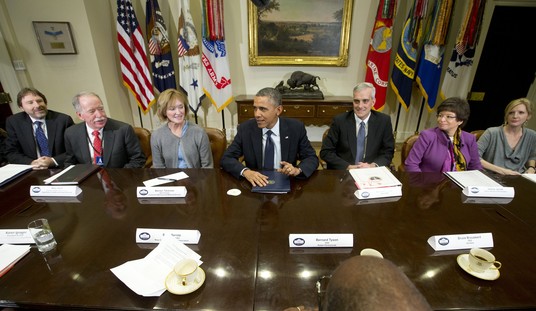NY Times columnist Pamela Paul was recently invited to participate in an open debate at Stanford. The whole point of the weekend gathering was to demonstrate that people on various sides could still have a civil discussion about hot-button topics. Not surprisingly, some elements on campus opted out. Can you guess which group decided not to show up?
Hosted by Stanford Law School and the Stanford Graduate School of Education, the conference brought together professors, deans and academic leaders who were largely liberal, with libertarians and a few conservatives and progressives in the mix. Unfortunately, one of the organizers told me, most of the invited progressives, which is to say the group that currently dominates campus debates, refused to come.
Not very surprising, really. But Paul says the participants who did show up engaged in some good-faith discussion. One of the topics they argued about was DEI hiring statements. If you're not familiar with them, these are statements which many schools now require from all prospective hires talking about their personal commitment to DEI goals. I'll share my opinion about these a little later but first here's how the discussion at Stanford went.
Brian Soucek, a professor at the U.C. Davis School of Law and an advocate of D.E.I. statements, started the panel off by making his case. Mere statements of belief in D.E.I. are not enough, he said. In an effort to reach consensus on what a D.E.I. hiring statement should look like, in lieu of U.C. Davis’s current required statement, he proposed an abbreviated version that asked candidates specifically about D.E.I. shortcomings and gaps in their fields of discipline and concrete steps they’ve taken or plan to take to address them.
A historian from Carleton College argued this was "fundamentally dishonest."
“It’s always ‘historically excluded and underrepresented,’” she said. “But historically when? Conservatives could argue they have been historically excluded. What’s underrepresented at Hillsdale College will be different from what’s underrepresented in the U.C. system.”
“We all know that there’s a strong political orientation bias being perpetuated,” she continued. “‘Not a good fit,’ they’ll say. It’s fundamentally dishonest, and it creates more problems than it addresses.”
A sociologist from Stony Brook University was even more blunt: "What they want are non-straights, nonwhites and non-men. But they don’t say it that way." Overall, it sounds like there were more critics of DEI hiring statements than supporters, which is slightly surprising, though maybe that's partly because progressives didn't show up to talk about it.
It's good that Stanford could host such a discussion, but I still suspect if you announced a debate on this particular topic at many universities you'd have student groups doing their best to shut it down and deplatform the speakers they disagreed with. Indeed, one of the commenters suggested such a debate probably couldn't be held at Carleton College:
Diversity is a worthwhile goal, but diversity of what? I happen to have a daughter at Carleton. She loves it, but feels there's a mono culture of progressive thought in all of her non-science classes. No one on campus speaks to the conservative point of view. Ever. Even moderate views are shunned. She was exposed to a far wider range of thinking at her high school on Cape Cod, one of the least racially diverse schools in the country.
Some of the best high school classes she had were with a history and government teacher who would challenge his students by specifically presenting conservative and progressive positions as points for debate and discussion. There were no right or wrong answers. What mattered was the thinking behind the answers. A teacher like that could not get a job at Carleton regardless of identity. At Carleton, it is not ok for a professor to present a conservative perspective as a reasonable alternative. That's a shame.
Another commenter said the silencing of alternate views has already made it to high school debate classes.
It's not limited to college or workplace. In a high school debate class, where the purpose of debate it to be able to argue the pros and cons of every topic, with the winning side making the the best, most reasonable/logical argument, my 17 year of daughter on an unpopular side was shouted down thanks to an only partially present teacher, and a "woke" student body. The motion? Should undocumented people get free in-state college tuition. There are two answers to this question, yes and no, but my daughter's UES private didn't get to hear an answer. My daughter didn't choose her side, she was assigned her side - no. And not a single student in her class got to hear her logic - in debate. That's a shameful state of affairs.
One more:
The issue of requiring “diversity hiring statements” is not complicated.
If a university, or other employer, required a “hiring statement” that the candidate was a Democrat, not a Republican, would that be acceptable and constitutional? Most Americans would strongly say no.
The word ”diversity” has recently become a euphemism for racial preference.
Americans are “diverse” in innumerable ways, not just racially, and that is a good thing.
My own take is that DEI hiring statements are just a way for progressive universities to eliminate anyone who doesn't toe the ideological line. In practice it also means that white and Asian applicants are less likely to get job offers.
The championing of diversity at the University of California resulted in many campuses rejecting disproportionate numbers of white and Asian and Asian American applicants…
At Berkeley, a faculty committee rejected 75 percent of applicants in life sciences and environmental sciences and management purely on diversity statements, according to a new academic paper by Steven Brint, a professor of public policy at U.C. Riverside, and Komi Frey, a researcher for the Foundation for Individual Rights and Expression, which has opposed diversity statements…
According to a report by Berkeley, Latino candidates constituted 13 percent of applicants and 59 percent of finalists. Asian and Asian American applicants constituted 26 percent of applicants and 19 percent of finalists. Fifty-four percent of applicants were white and 14 percent made it to the final stage. Black candidates made up 3 percent of applicants and 9 percent of finalists.
This is just affirmative action by other means. Even at Berkeley, officials decided this was going too far and required search committees to actually look at candidate's qualifications before rejecting them. Hopefully it won't take another Supreme Court decision to put an end to this.








